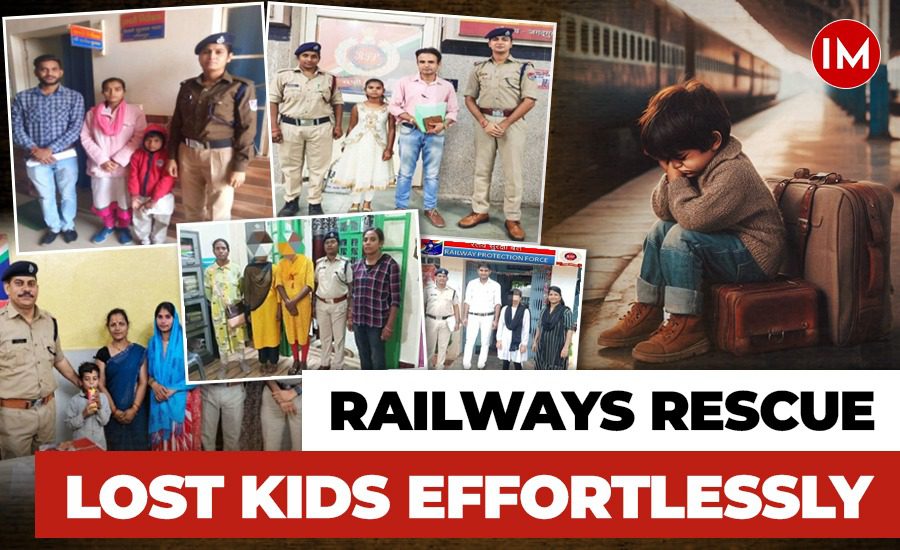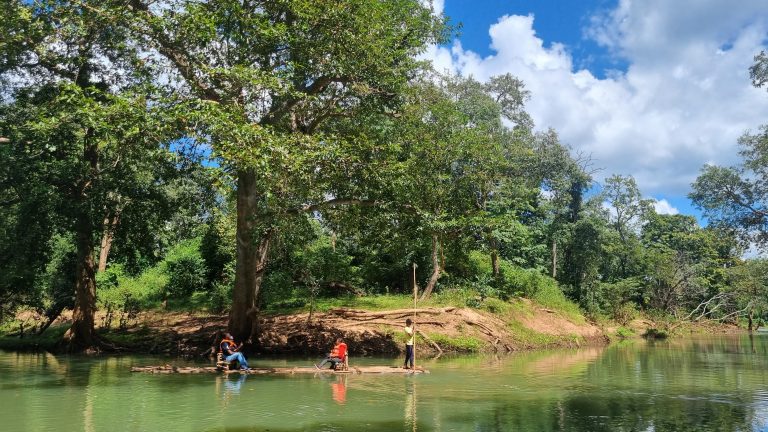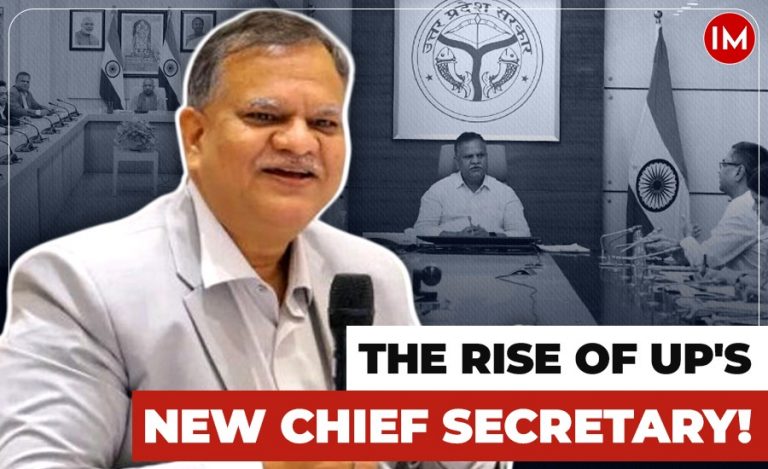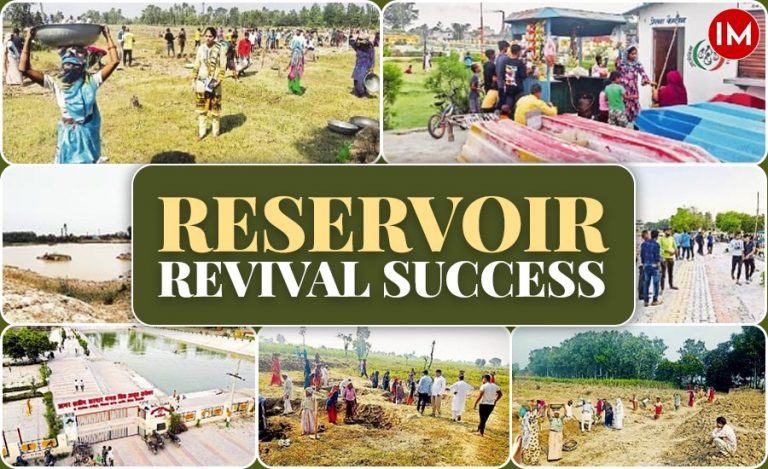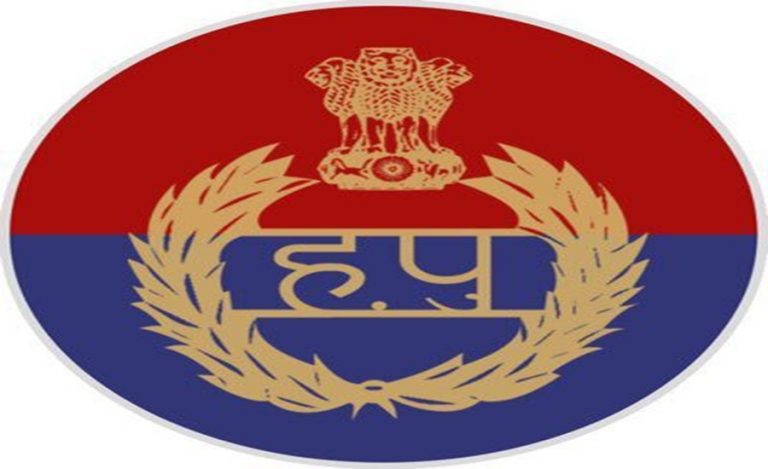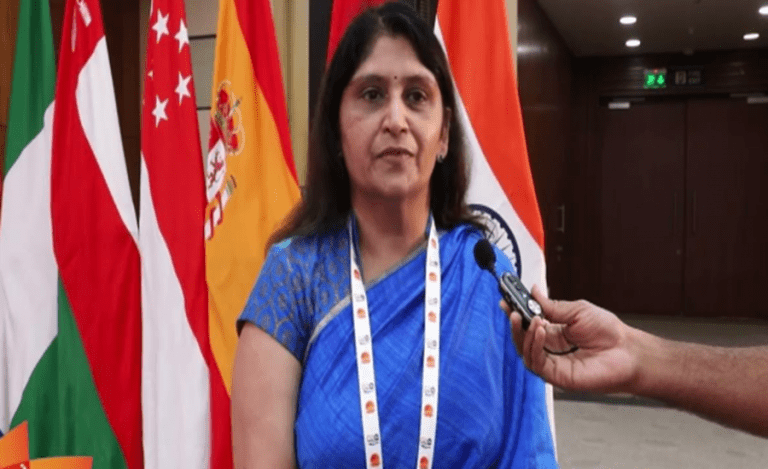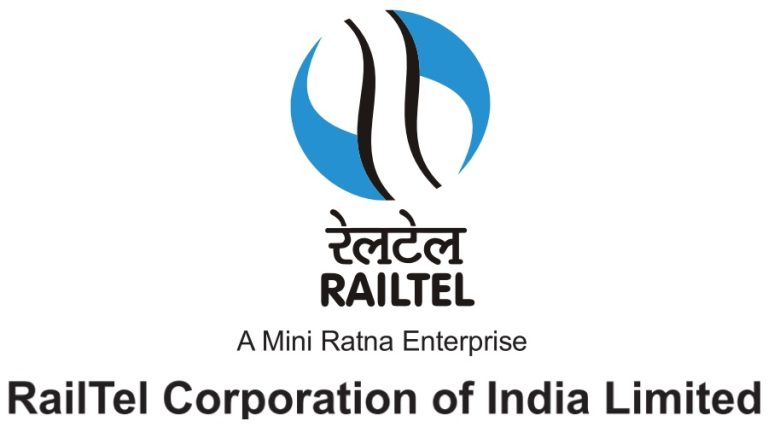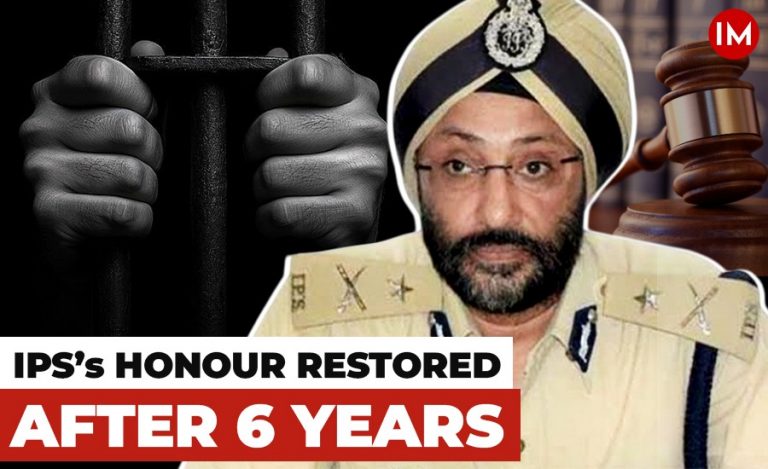Railways are the most reliable and safest means of transportation in the country. Beyond just providing transportation, the railways also fulfill significant social responsibilities. Numerous instances have occurred where young men and women, teenagers, and minor children become separated from their families or run away in anger. Some children even get trapped and are forced to take shelter at railway platforms. However, the railways take on the responsibility of safely reuniting these individuals with their families.
Under ‘Operation Nanhe Farishte,’ thousands of children have been reunited with their families over the past two years. In the Agra division alone, the Railway Protection Force (RPF) handed over 316 children to the Child Help Desk and Child Welfare Committee (CWC) in 2022, 147 children in 2023, and 21 children up to April 2024, following the established protocols. The RPF remains unwavering in its commitment to safeguarding railway property, passenger areas, and the well-being of travelers.
Indian Masterminds interacted with 2017 batch IRTS officer Prashasti Srivastava, DCM (Divisional Commercial Manager) of Agra division, North Central Railway, and Mr Commandant Anubhav Jain, Senior Divisional Security Commissioner, RPF/AGRA, to know more about this.
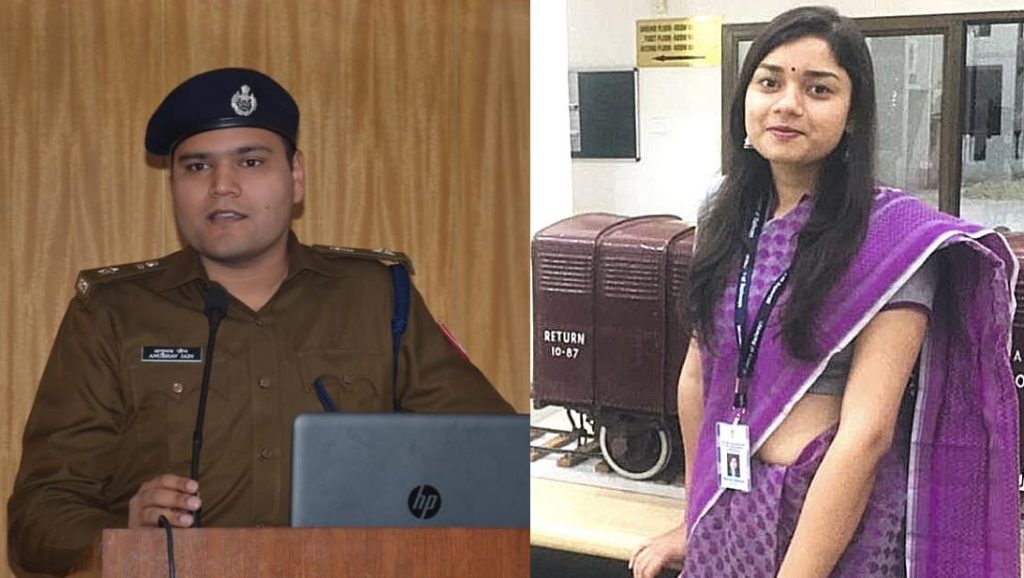
OPERATION NANHE FARISHTE
The RPF played a pivotal role in this operation. While similar initiatives were previously carried out by the railways, each division operated under different names, leading to inconsistent implementation and coordination across departments. To address this, the initiative was unified under a common name: ‘Operation Nanhe Farishte.’ This change has enabled all divisions to work together more effectively, ensuring better coordination and implementation of the program.
Under this operation, the RPF established a Standard Operating Procedure (SOP) for children in contact with railways. As part of this SOP, child desks were set up at various locations. Railway officers and numerous NGOs were involved, and the work was carried out under the supervision of the Child Welfare Committee.
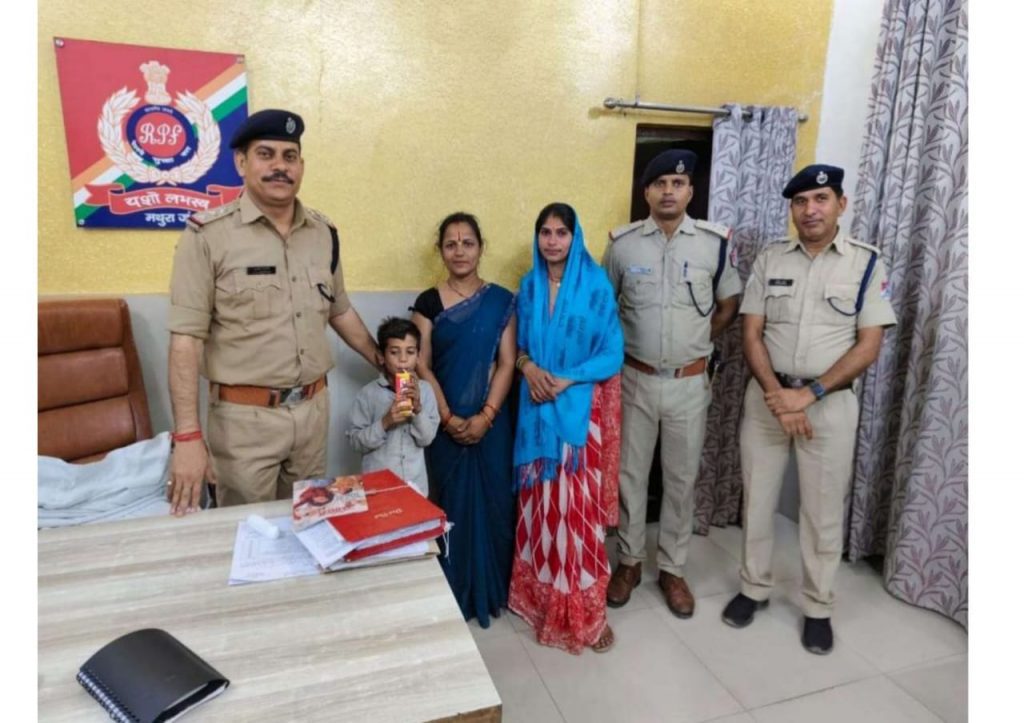
The RPF rescues all runaway children who are separated from their families or have left home. After collecting all necessary information, these children are presented before the Child Welfare Committee. Subsequently, they are reunited with their families.
Some cases involve missing persons, while others pertain to criminal activities like kidnapping, and are treated accordingly. Children who have run away from home on their own are provided with counseling.
Ms. Prashasti stated, “It’s common for small children to get lost, left behind, or stray from railway stations and trains. The railways have a well-planned approach for these situations. Through ‘Operation Nanhe Farishte,’ the RPF identifies and safely returns these children to their families.”
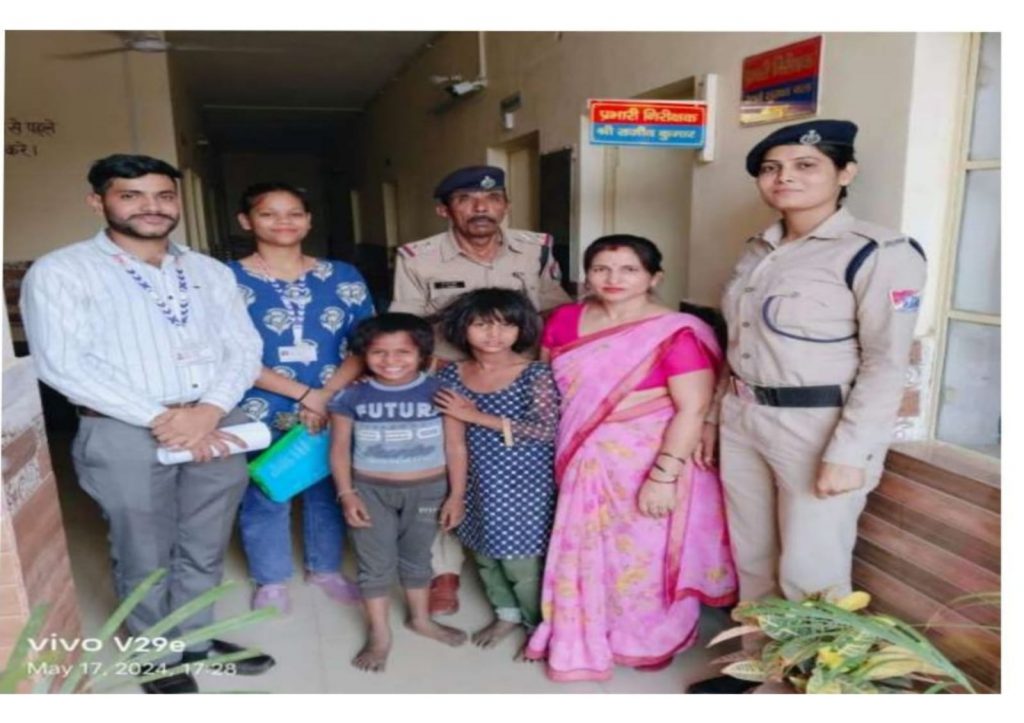
DIFFERENT CASES
In this operation, some cases involve missing persons, while others pertain to criminal activities like kidnapping, and are treated accordingly. Children who have run away from home on their own are provided with counseling.
Mr Anubhav said, “There is a special provision for children who are found begging. The first attempt is to reunite them with their families, and if someone is found guilty in the case, they are punished.”
He further explained that, however, in many cases, the child cannot provide any information, or their family situation is such that the child does not want to return home. In these instances, the child is handed over to the Child Welfare Committee. The committee then places the children in childcare shelter homes and keeps them under its care until a proper resolution is found.
He mentioned that, in addition to the RPF, the ChildLine NGO has also established counters for lost and missing children at major stations across India. These efforts extend to children who leave their homes due to anger or other reasons. Both the RPF and the NGO are actively involved in counseling these minors and facilitating their reunion with their families.
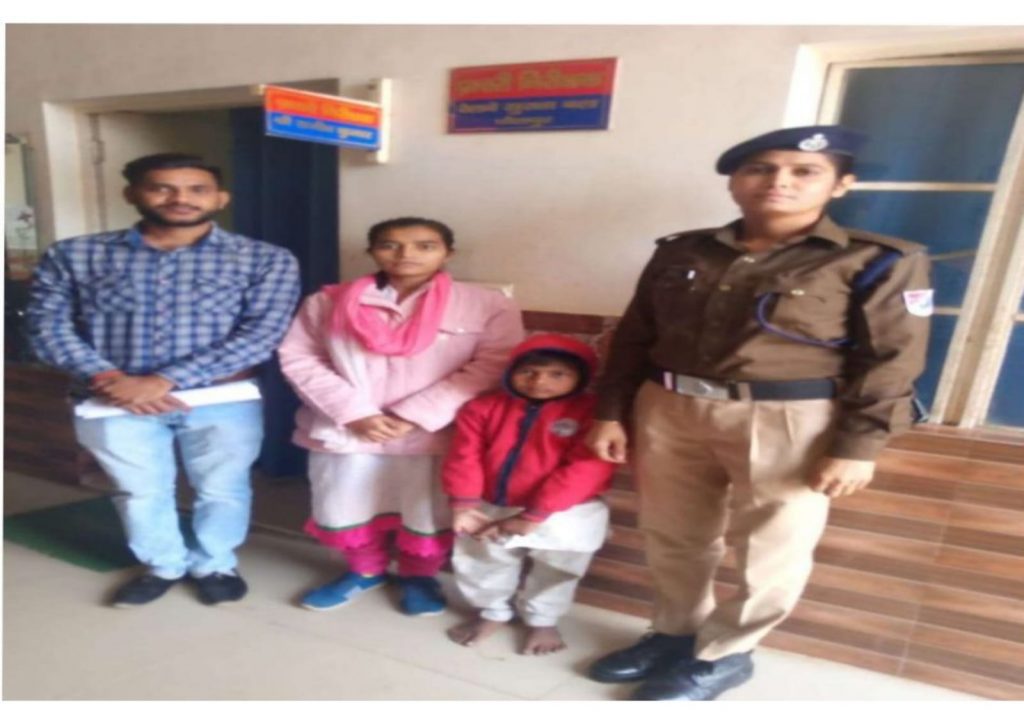
THE IMPACT
Mr Anubhav said that the amenities and facilities available on the railways attract many children to the railway premises. To address this, public awareness campaigns are run to discourage children from leaving their homes and coming to the railway stations. Despite being a social issue, this effort has led to a notable reduction in the number of children arriving at the platforms.
He said, “Previously, children often made railway platforms their permanent base, finding shelter in various corners. However, due to the effectiveness of these campaigns and coordinated efforts, such scenes are now rarely seen on platforms.”
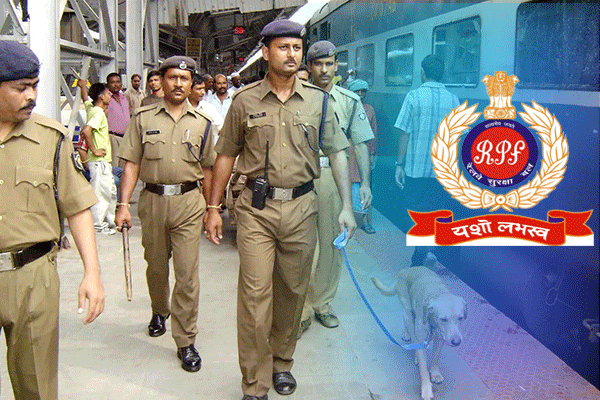
ABOUT RPF
The RPF traces its origins to 1882 when Railway companies appointed guards to protect Railway property. It became a statutory force in 1957 and an armed force of the Union of India in 1985. In 2003, it began escorting passenger trains and controlling access at railway stations. Led by a director-general, it operates under the Union Ministry of Railways, safeguarding railway property, passenger areas, and passengers themselves.

